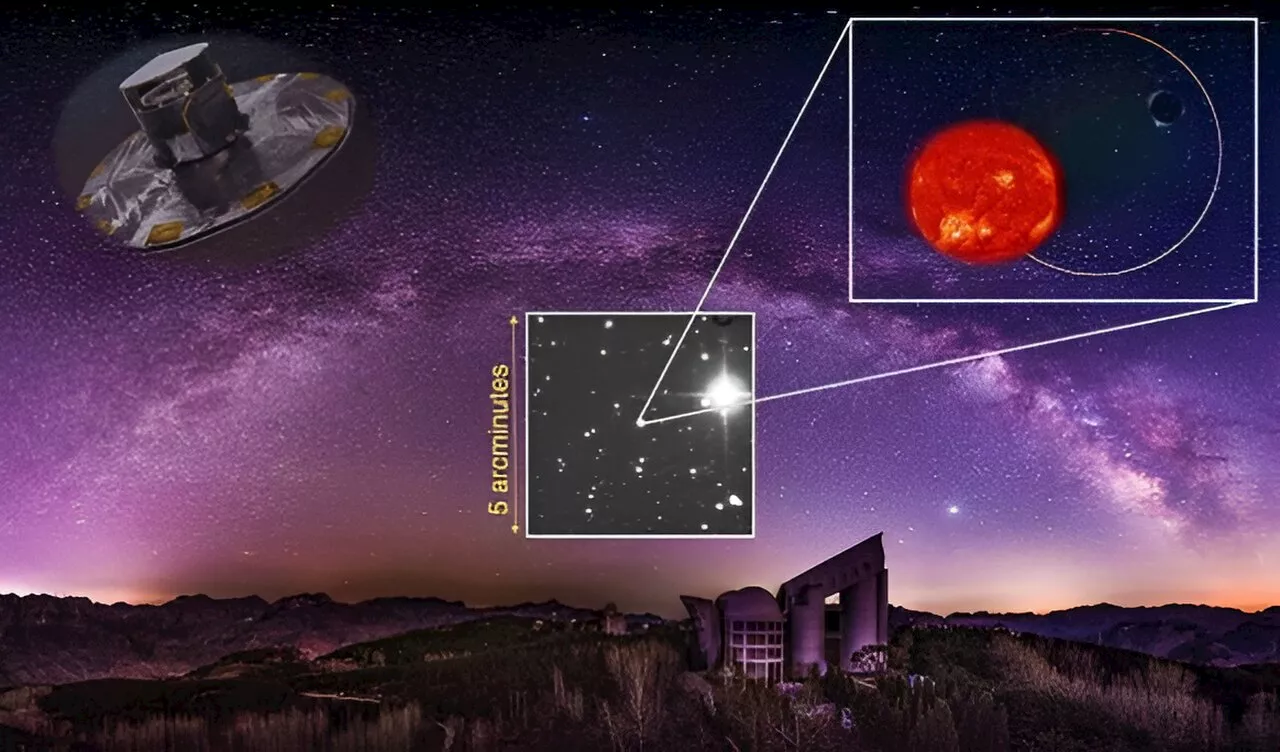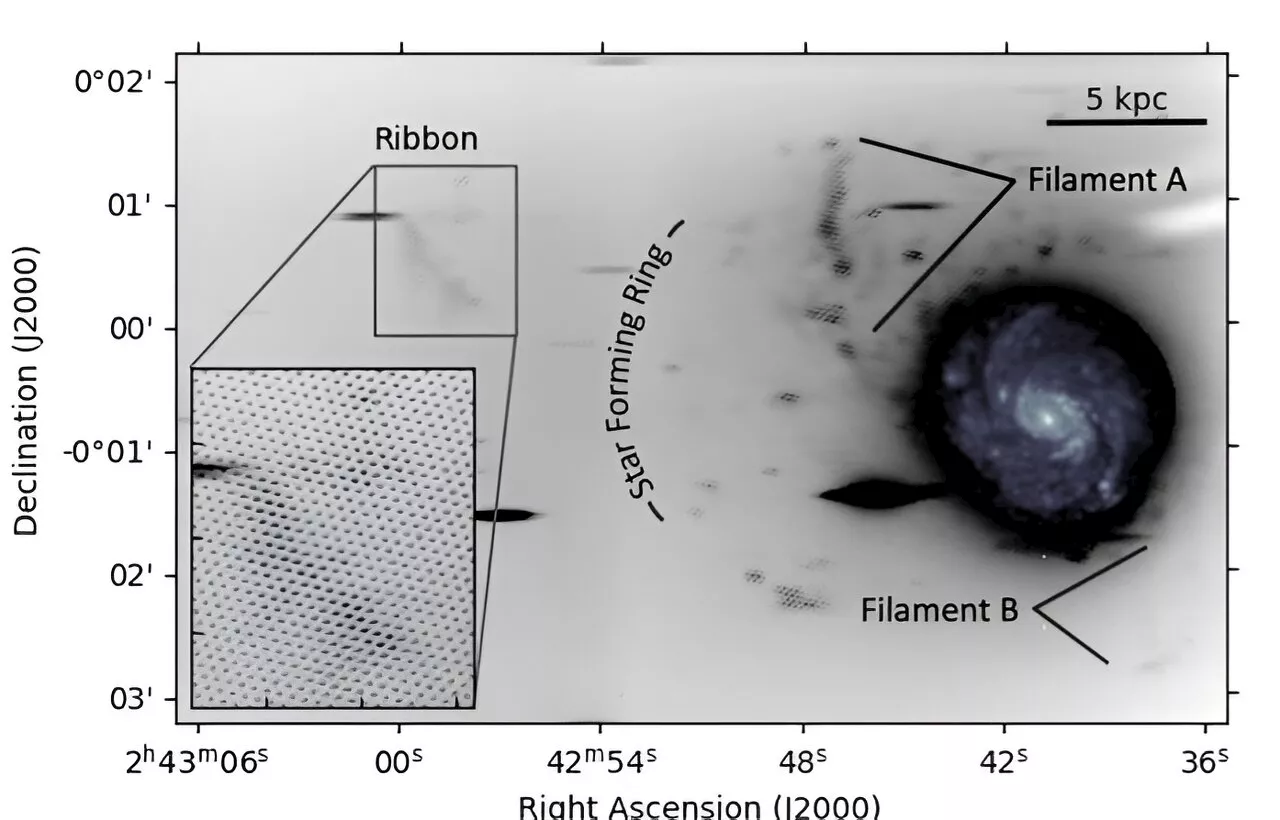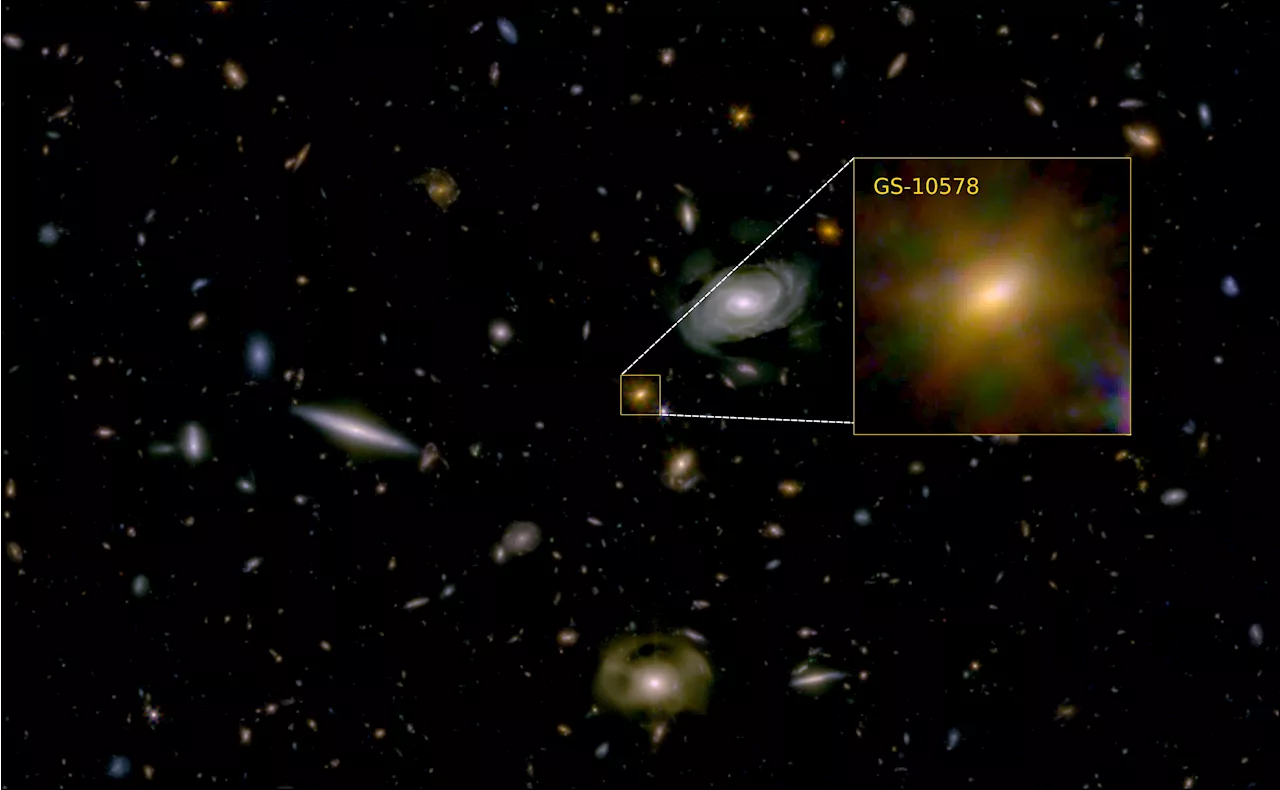A supermassive black hole is devouring the gas in its host galaxy, leading to its demise.
Astronomers detect black hole 'starving' its host galaxy to death retrieved 16 September 2024 from https://phys.org/news/2024-09-astronomers-black-hole-starving-host.html
This document is subject to copyright. Apart from any fair dealing for the purpose of private study or research, no part may be reproduced without the written permission. The content is provided for information purposes only.Use this form if you have come across a typo, inaccuracy or would like to send an edit request for the content on this page. For general inquiries, please use ourThank you for taking time to provide your feedback to the editors.
Your feedback is important to us. However, we do not guarantee individual replies due to the high volume of messages.to let the recipient know who sent the email. Neither your address nor the recipient's address will be used for any other purpose. The information you enter will appear in your e-mail message and is not retained by Phys.org in any form.Get weekly and/or daily updates delivered to your inbox.
Black Hole Galaxy Starvation Astronomy Astrophysics
United States Latest News, United States Headlines
Similar News:You can also read news stories similar to this one that we have collected from other news sources.
 Astronomers Precisely Forecast a Black Hole’s Snack ScheduleA recurring tidal disruption event was predicted and then came to pass, giving the researchers a chance to predict the black hole's next meal.
Astronomers Precisely Forecast a Black Hole’s Snack ScheduleA recurring tidal disruption event was predicted and then came to pass, giving the researchers a chance to predict the black hole's next meal.
Read more »
 Astronomers Spot Supermassive Black Hole Merger in ProgressHubble Telescope reveals three bright 'hot spots' deep inside a colliding galaxy, suggesting a pair of supermassive black holes are merging. The discovery offers a unique opportunity to study the mechanics of such events in the nearby Universe.
Astronomers Spot Supermassive Black Hole Merger in ProgressHubble Telescope reveals three bright 'hot spots' deep inside a colliding galaxy, suggesting a pair of supermassive black holes are merging. The discovery offers a unique opportunity to study the mechanics of such events in the nearby Universe.
Read more »
 Astronomers discover a long-hidden small black hole in an unusually evolved binary systemChinese researchers have discovered a promising mass-gap black hole using radial velocity and astrometry methods. The study was published online in Nature Astronomy on Sept. 10, and was conducted by a team led by Dr. Wang Song, an associate researcher from the National Astronomical Observatories of the Chinese Academy of Sciences (NAOC).
Astronomers discover a long-hidden small black hole in an unusually evolved binary systemChinese researchers have discovered a promising mass-gap black hole using radial velocity and astrometry methods. The study was published online in Nature Astronomy on Sept. 10, and was conducted by a team led by Dr. Wang Song, an associate researcher from the National Astronomical Observatories of the Chinese Academy of Sciences (NAOC).
Read more »
 Astronomers detect extended ionized gas around Messier 77Using the Circumgalactic H-alpha Spectrograph (CHαS), astronomers have performed spectroscopic observations of a nearby active galaxy designated Messier 77. They detected a very extended structure of ionized gas around this galaxy.
Astronomers detect extended ionized gas around Messier 77Using the Circumgalactic H-alpha Spectrograph (CHαS), astronomers have performed spectroscopic observations of a nearby active galaxy designated Messier 77. They detected a very extended structure of ionized gas around this galaxy.
Read more »
 Astronomers Detect 'Powerful Iron Winds' on Ultrahot World''This is the first time such detailed optical observations have been made on the day side of this exoplanet,'' a researcher said.
Astronomers Detect 'Powerful Iron Winds' on Ultrahot World''This is the first time such detailed optical observations have been made on the day side of this exoplanet,'' a researcher said.
Read more »
 Some black holes have a 'heartbeat' — and astronomers may finally know whyPaul M. Sutter is a research professor in astrophysics at SUNY Stony Brook University and the Flatiron Institute in New York City. He regularly appears on TV and podcasts, including 'Ask a Spaceman.' He is the author of two books, 'Your Place in the Universe' and 'How to Die in Space,' and is a regular contributor to Space.
Some black holes have a 'heartbeat' — and astronomers may finally know whyPaul M. Sutter is a research professor in astrophysics at SUNY Stony Brook University and the Flatiron Institute in New York City. He regularly appears on TV and podcasts, including 'Ask a Spaceman.' He is the author of two books, 'Your Place in the Universe' and 'How to Die in Space,' and is a regular contributor to Space.
Read more »
